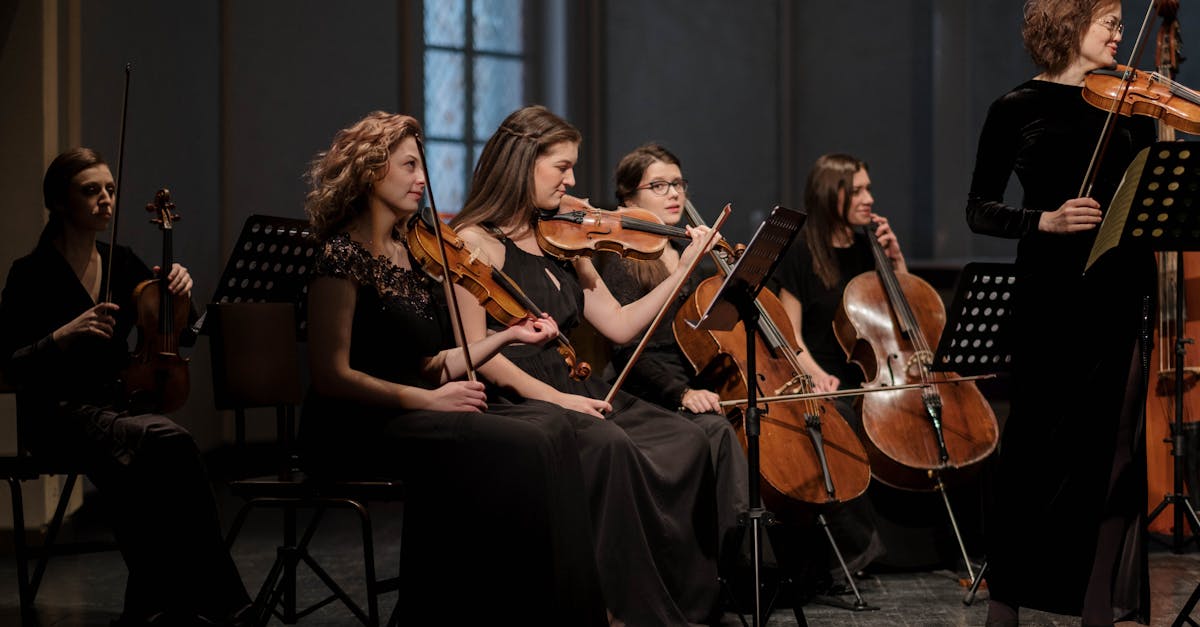Global Melodies Insights
Introduction
Music has always been an integral part of human society, transcending borders and uniting people across cultures. Global melodies are vivid reflections of the world's diverse heritage, each note telling a unique story of cultural evolution. From the time-honored rhythms of African drums to the intricate harmonies of European classical music, every melody has a tale to tell. These tunes do more than entertain—they educate and preserve the essence of civilizations. As we delve deeper into the significance of global melodies, we uncover a world rich in history, identity, and emotion. Understanding these musical insights can foster a greater appreciation for our global identity.
Advertisement
Music as a Cultural Mirror
Global melodies serve as an auditory reflection of the cultural landscapes they emerge from. Each region has music deeply intertwined with its customs, beliefs, and history. In Latin America, vibrant salsa beats echo the struggles and victories of its people, while the soothing sounds of Chinese guqin resonate with philosophical musings. Music mirrors societal changes, adapting over time with shifts in political, economic, and social environments. It's a tapestry woven with stories of migration, resistance, celebration, and spiritual belief. By examining global music, one can gain a broader understanding of how societies have evolved.
Advertisement
Preserving Heritage through Music
Global melodies are instrumental in preserving historical narratives and traditional practices. Many cultures use music as a storytelling medium, passing down legends and ancestral knowledge through song. For instance, Indigenous Australian music bears witness to the Dreamtime, an era when ancestral spirits shaped the land and its people. Similarly, the haunting notes of the Turkish Ney evoke the mysticism of the Sufi path. In an ever-changing world, these melodies act as cultural anchors, maintaining a connection to past generations while providing a sense of continuity. Without this oral tradition, much of our global heritage would fade with the passage of time.
Advertisement
Music as a Tool for Social Change
Songs have historically served as powerful tools for social advocacy and change. Across the globe, musicians have used their platforms to challenge injustices and advocate for societal transformation. Folk songs from the American Civil Rights movement inspired calls for equality, while reggae icons like Bob Marley championed peace and freedom, giving a voice to the oppressed. Music's universal language can transcend barriers, uniting diverse groups under common causes. Whether in protests or performances, global melodies have the power to inspire action and ignite change, proving that music is more than just an art form; it is a catalyst for revolution.
Advertisement
Musical Exchanges and Fusion
The 21st century has witnessed an unprecedented blending of musical genres, facilitated by globalization and technological advancements. This cross-cultural exchange has enriched global melodies, leading to innovative fusions of sound and style. Artists like Shakira and BTS reflect this convergence, combining traditional music elements with contemporary pop influences. These collaborations are a testament to music's dynamic nature, showcasing its ability to adapt while retaining cultural integrity. Through these exchanges, listeners experience a musical dialogue that challenges and expands existing cultural norms.
Advertisement
The Role of Technology in Music Evolution
Technological advancements have played a pivotal role in shaping global melodies, providing platforms for sharing and collaboration. Social media and streaming services have amplified musicians' reach, dissolving geographical barriers and democratizing access to diverse sounds. Musicians now experiment with digital instruments and production tools, allowing for deeper creative expression and experimentation. From virtual concerts to AI-generated compositions, technology continues to redefine how we experience and interact with music. This evolution promises an exciting future, where the possibilities of global melodies are limited only by the bounds of imagination.
Advertisement
Music Education and Cultural Competence
Studying global melodies fosters cultural competence, promoting understanding and empathy across diverse groups. Schools worldwide incorporate world music education to expose students to different cultural perspectives and traditions. Engaging with global music encourages respect, reduces cultural biases, and nurtures curiosity about the world. When students learn about the rhythmic complexities of Indian classical music or the lyrical grace of French chansons, they gain an appreciation for global diversity. This holistic approach to education highlights the interconnectedness of cultures, preparing future generations for a multicultural world.
Advertisement
Economic Impact of Global Melodies
The global music industry is a significant economic force, generating substantial revenues and employment opportunities across regions. Music festivals and world tours boost local economies, enticing tourists and fostering cultural tourism. For many nations, traditional music forms an essential part of their cultural export, contributing to their national identity on the world stage. Whether it's the success of K-Pop in Western markets or the global influence of Afrobeat, these musical exports showcase the economic potential within the arts. As international collaboration and consumption grow, global melodies will continue to drive both cultural enrichment and economic growth.
Advertisement
Contemporary Challenges in Global Music
Despite its richness, the world of global melodies faces challenges, including cultural appropriation and the commercialization of indigenous music. As music becomes commodified, there is a risk of losing its authenticity and cultural significance. Artists and communities often struggle to protect their cultural heritage from being exploited without consent or proper recognition. Additionally, the dominance of certain genres can overshadow lesser-known musical traditions, threatening their survival. To address these issues, it is vital for musicians and consumers alike to engage with music ethically, promoting cultural diversity and preserving musical heritage for future generations.
Advertisement
Summary and Conclusion
Global melodies serve as an intricate tapestry, weaving together diverse cultural strands into a harmonious whole. They are more than just sounds—they're vital components of cultural preservation, social change, and economic impact. Through innovation and collaboration, the fusion of global melodies continues to introduce fresh sounds while retaining cultural integrity. Although challenges persist, a proactive approach can ensure the protection and appreciation of these diverse musical heritages. Ultimately, global melodies remind us of our shared humanity, accentuating our differences while celebrating the unity they create.
Advertisement




